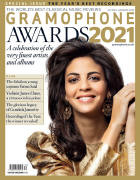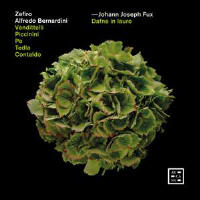Texte paru dans: / Appeared in: |
|
|
Outil de traduction (Très approximatif) |
|
|
Reviewer: David Vickers The ‘componimento per camera’ Dafne in lauro celebrated Charles VI’s birthday in October 1714 at the imperial family’s pleasure palace in Wieden. Pietro Pariati’s libretto is a treatment of the Ovidian myth of the chaste nymph Daphne (an acolyte of Diana) who, pursued by Apollo (acting here under the influence of the mischievous Cupid), transforms herself into a laurel tree to escape the Sun God’s unwelcome amorous attention (Apollo having ignored Mercury’s admonishments to calm down). A concluding licenza led by the penitent Apollo alludes to the Holy Roman Emperor being crowned with laurels. The pastoral entertainment features plenty of French-style dances filtrating its arias – and, as one would expect from a composer whose works still remain overshadowed by his treatise on harmony (Gradus ad Parnassum, 1725), there is abundant evidence of Fux’s renowned mastery of counterpoint. Daphne’s gigue ‘Io so che tanto piace’ is sung with lively agility and extrovert confidence by Arianna Vendittelli. The nymph’s simile of a naive bird trapped by landing on a branch pasted with birdlime (‘Va prigioniero quell’augeletto’) is a polyphonic dialogue for florid voice, flute and chalumeau over simple solo bassoon bass. The scene of her metamorphosis is an intimate minor-key lament with solo viola da gamba during which time seems to stand still (‘Lascio d’esser Ninfa, sì’). The coloratura in Diana’s rhythmically quirky paean to hunting (‘Sappia il monte’) is sung dazzlingly by Monica Piccinini, and the goddess’s petition for Apollo to choose virtue rather than pester her acolyte is a vivacious chaconne (‘Il voler vincer Amore’). Cupid’s playful ‘Non v’è cor che del mio foco’ (with fruity bassoon obbligato) and scampering bourrée ‘Io so con cento frodi’ (apologising to Diana) are sung brightly by Sonia Tedla Chebreab. Valerio Contaldo’s Mercurio is articulate yet brawny; his animated singing is spot on in the tempestuous ‘A l’or ch’è più agitato’ (a vigorous setting of an archetypal simile text on the mariner struggling to find safe harbour amid violent storms). Rafaelle Pe aptly conveys the trajectory of Apollo’s conceit, charm, stubborness and sorrow. The Sun God’s initial attempt to seduce the uninterested nymph starts with impetuous volatility that forces her to stay and listen, but transforms ingeniously into a lovely sarabande (‘Ferma, o cara). The virtuoso yet graceful licenza ‘Questa fronda che circonda’ partners Miguel Rincón’s elaborate archlute obbligato with Pe’s fast passagework. This live recording, made during a run of three staged performances in June 2019 in Graz (the composer’s native town), inaugurates Zefiro and Arcana’s series devoted to reviving six of Fux’s extant stage works. Alfredo Bernardini conducts with impeccable dramatic pacing and perceptive shaping of details. The strings, led by Cecilia Bernardini, play with impeccable chiaroscuro and, as one expects from Zefiro, there is magnificent playing from assorted woodwinds.
|
|




